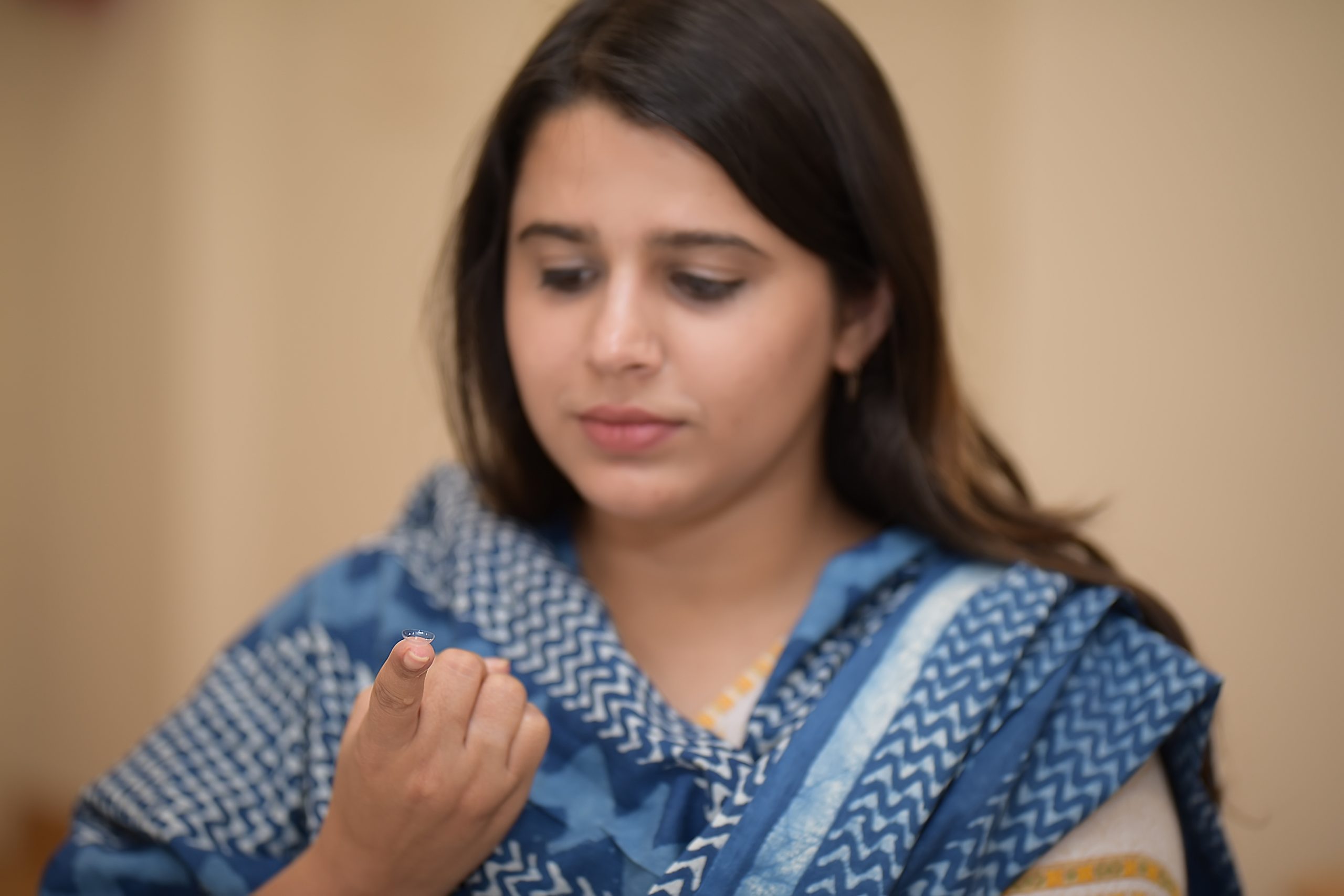Cornea Clinic
Dr. Ridhima Bhagali has been trained in Cornea and Anterior segment in King’s College Hospital, London under the very able guidance of the prolific Cornea transplant surgeon, Dr. Emma Hollick.

Dry Eye
Often seen in postmenopausal women, diabetics & contact lens users. Its also associated with systemic diseases like arthritis or prolonged computer usage, leading to discomfort & vision issues.
Ocular Allergy
A condition that triggers itching, redness, and overall discomfort in the eyes, often due to allergens or environmental factors, affecting daily activities and quality of life.
Infections
These include viral, bacterial, fungal, or contact lens-associated infections, which can lead to severe complications if not treated promptly, affecting the health and clarity of the cornea.
Trauma or Chemical Injury
Physical trauma or exposure to harmful chemicals can damage the cornea, leading to immediate pain, inflammation, and potential long-term vision problems if not addressed quickly.
Keratoconus
A progressive eye disease where a part of the cornea thins out and begins to bulge into a cone-like shape, causing significant vision distortion that often requires specialized treatment.
Corneal Opacity
When the cornea becomes cloudy or loses its transparency due to scarring, disease, or other factors, leading to impaired vision and the need for medical intervention.
What makes us
different?
- What conditions affect the cornea and how are they treated?
- Why do diabetics and myopic patients need retina exams?
- What symptoms indicate a need for a retina check?
- What should I do if I suddenly lose vision or see a curtain?
The cornea can be affected by conditions such as dry eye, ocular allergies, infections (viral, bacterial, fungal), trauma or chemical injury, keratoconus, and loss of transparency (corneal opacity). Our clinic offers the latest techniques in diagnosing and managing these conditions at a reasonable cost.
Diabetics and individuals with myopia are at a higher risk for retinal conditions. An annual dilated retina examination allows for early detection and treatment of issues like diabetic retinopathy, which can help preserve vision and prevent complications.
Symptoms such as floaters, flashes of light, the appearance of a curtain or spot in your vision, and difficulties with near or night vision are important warning signs. These symptoms indicate the need for a thorough retina examination to rule out serious conditions like retinal detachment or other retinal diseases.
A sudden loss of vision or the sensation of a curtain closing in on your vision could be a sign of retinal detachment, which is a medical emergency. Immediate consultation with an eye doctor is essential, as early treatment increases the chances of vision restoration.
What makes us
different?
- What conditions affect the cornea and how are they treated?
- Why do diabetics and myopic patients need retina exams?
- What symptoms indicate a need for a retina check?
- What should I do if I suddenly lose vision or see a curtain?
The cornea can be affected by conditions such as dry eye, ocular allergies, infections (viral, bacterial, fungal), trauma or chemical injury, keratoconus, and loss of transparency (corneal opacity). Our clinic offers the latest techniques in diagnosing and managing these conditions at a reasonable cost.
Diabetics and individuals with myopia are at a higher risk for retinal conditions. An annual dilated retina examination allows for early detection and treatment of issues like diabetic retinopathy, which can help preserve vision and prevent complications.
Symptoms such as floaters, flashes of light, the appearance of a curtain or spot in your vision, and difficulties with near or night vision are important warning signs. These symptoms indicate the need for a thorough retina examination to rule out serious conditions like retinal detachment or other retinal diseases.
A sudden loss of vision or the sensation of a curtain closing in on your vision could be a sign of retinal detachment, which is a medical emergency. Immediate consultation with an eye doctor is essential, as early treatment increases the chances of vision restoration.
Contact us
Call us
+91 73879 63666
Visit us anytime
793, Shreeman Socty, Deccan
Send us an email
care@nayanjyoteyeclinic.com
About us
Subscribe
Sign up for our newsletter to receive all the news offers and discounts from Nayanjyot Eye Clinic!
Contact us
Call us
+91 73879 63666
Visit us anytime
793, Harshavardhan Socty Deccan Gymkhana, Pune
Send us an email
care@nayanjyoteyeclinic.com
About us
Subscribe
Sign up for our newsletter to receive all the news offers and discounts from Nayanjyot Eye Clinic!

